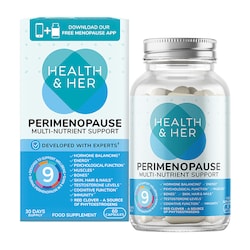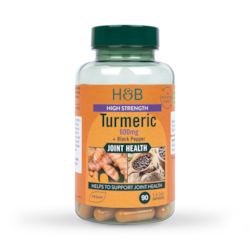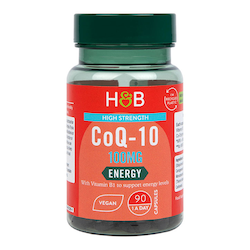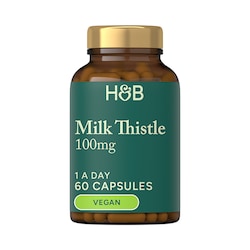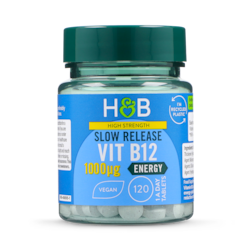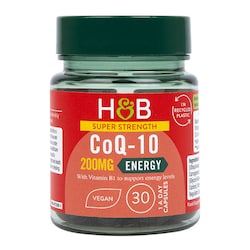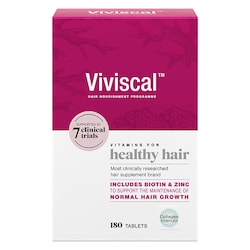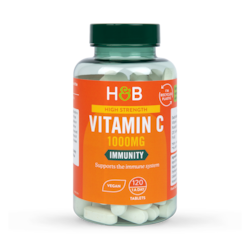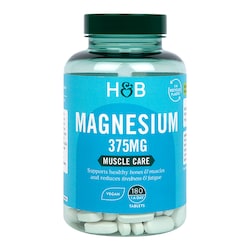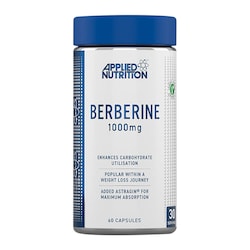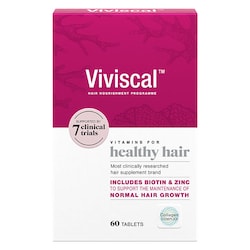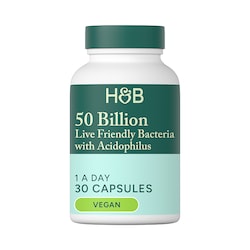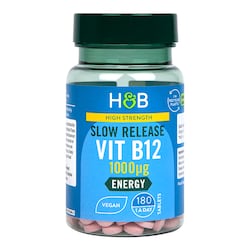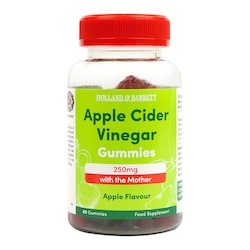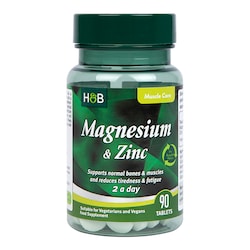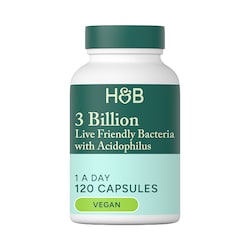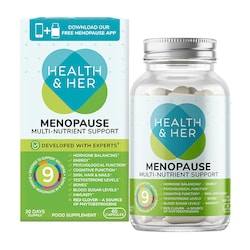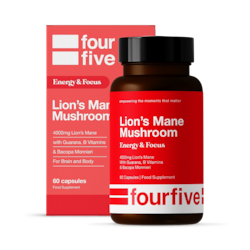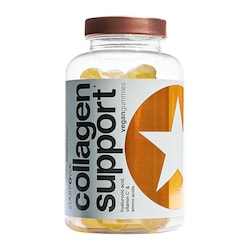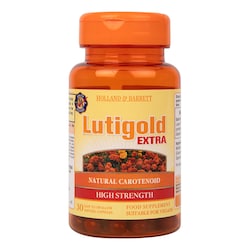15% off £30 OR 20% off £40
What vitamins & nutrients do vegans need?

Summary
1What supplements should vegans take?
Here are the nutrients you can go short of – and how to get enough. For non-vegans, most of these nutrients come from meat, fish and dairy products...
210 nutrients you need in your vegan diet
So, onto the important bit: which top 10 nutrients should you be looking out for if you're on a vegan diet?...
3Is a multivitamin enough for a vegan?
With all these important vitamins that as a vegan you could be missing out on, you may be thinking that a multivitamin is the best option for you....
Certain vitamins and minerals can be tricky to find in your diet when you’re vegan. Here’s how to nail those essential nutrients.
If you’re already a vegetarian or flexitarian, there may be one question stopping you from going vegan: will I get enough vitamins and minerals Having a vegan diet has many health benefits, including being low in saturated fats, lower in sugar and having higher levels of antioxidants.
However, excluding certain food groups can cause deficiencies in certain nutrients and minerals.
It’s a valid concern: some nutrients – such as vitamin B12 and omega-3 – are naturally more plentiful in meat, fish, or dairy. The good news is that a balanced vegan diet can give you all the vitamins and minerals you need.2
You just need to know which ones are a little trickier to get hold of…
What supplements should vegans take?
- It is totally possible to thrive on a vegan diet, you may just have to pay more attention to some vitamins, minerals, and other nutrients to make sure you’re getting enough
10 nutrients you need in your vegan diet
So, onto the important bit: which top 10 nutrients should you be looking out for if you're on a vegan diet?
-
Protein
Recommended daily intake: In the UK, the recommended daily intake of protein is 0.75g per kilogram you weigh.3
We know, we know, vegan food contains protein and you’re probably sick of getting questioned about it!
However, adequate protein is important for everybody, so here’s some extra info about the best vegan protein sources and some foods to look out for.
Why it’s important: Protein is vital for the repair and growth of our muscles and bones, as well as carrying oxygen around our bodies – so it's super important we get enough!
Find it: Vegan-friendly foods containing protein aren’t too hard to find and there are lots to choose from.
Fix it: Tofu, non-dairy milk, cheese or yoghurt, buckwheat, lentils, tempeh, nut butters, beans or pulses and vegetables are all great high protein vegan foods and versatile enough to be eaten throughout the day.
Top tip: Make sure to have a plant-based protein with every meal.
-
Zinc
Recommended daily intake: 8.7mg for men over the age of 18 and 14.8mg for women aged between 19 and 50. 8.7mg for women over the age of 50.4
Why it’s important: Zinc is important for many different reasons, most importantly it is needed for the normal function of the body’s immune system.
It also plays an important role in cell division, contributes to normal carbohydrate metabolism and to the maintenance of normal vision.5
Find it: This mineral is found in the largest amounts in meat, shellfish and dairy foods.6
Fix it: Include whole grains, soya, pulses, beans, nuts and seeds in your diet – all are good vegan sources of zinc.
-
Vitamin B12
Recommended daily intake: 1.5 micrograms for both men and women.7
Why it’s important: Vitamin B12 helps fight fatigue, supports the normal functioning of the nervous system, contributes to normal red blood cell formation, and even helps to produce DNA
B12 also contributes to the reduction of tiredness and fatigue.8
Find it: Vitamin B12 is only naturally found in meat, fish and dairy foods, so vegans may not get enough.9
Fix it: Fortified foods like vegan-friendly milks, vegan spreads, yeast extracts, breakfast cereals and nutritional yeast flakes all contain levels of B12. It’s important to include these vegan B12 sources in your diet as regularly as you can to maintain your intake of B12. If you are unable to find ways to add foods like the above into your diet, it is advisable to look for a B12 supplement.10
-
Iron
Recommended daily intake: 8.7mg for men and 14.8mg women
Why it’s important: Iron is essential in the body as it contributes to normal formation of red blood cells and haemoglobin. Red blood cells transport oxygen around the body. Without enough iron, we can feel sluggish and tired. That’s why it’s important to include iron-rich food for vegans in your diet.11
Find it: Iron is found as haem iron in meat and fish, and non-haem iron in plant sources. Non-haem iron is harder for our bodies to absorb.12
Fix it: Plant-based iron rich vegan foods include dark green leafy vegetables like kale, lentils, chickpeas, tofu, chia seeds, ground linseed, pumpkin seeds, nuts, dried apricots or figs, raisins, quinoa and some fortified breakfast cereals.
Did you know: Vitamin C increases the absorption of iron? Eat the above vegan foods high in iron with ones that are full of vitamin C to help absorb iron both effectively: peppers, broccoli, cabbage, oranges and grapefruit.
-
Vitamin D
Recommended daily intake: We need 10mcg of vitamin D a day. Between April and September, around 15-20 minutes of direct sunlight can provide you with enough vitamin D, but this will vary according to your skin type.13
In autumn and winter the sun isn’t strong enough in the UK for us to produce vitamin D, so it is recommended that everyone from the age of one takes a daily supplement of 10mcg.
For vulnerable groups who do not get enough sunshine – people with darker skin, those aged 65 or older, people who cover up for religious or cultural reasons, for example – a year-round vitamin D supplement is advised.14
Why it’s important: It helps maintain bone health and supports muscle function as well as your daily immunity.
Find it: As we mentioned above, sunlight is the main source of vitamin D, but as we live in the UK, it can be difficult to get as much as we need, especially during the winter months.
Fix it: It’s hard to get enough vitamin D (10mcg per day) from our diet, so a vegan-friendly supplement may be the answer.
Vitamin D2 is suitable for vegans but be sure to read the labels on other vitamin D variants as they may come from animal sources.
-
Calcium
Recommended daily intake: 700mg a day for both men and women
Why it’s important: Most people know that calcium is needed for the maintenance of normal bones and teeth.
However, the body also uses calcium to muscle function and transport messages between the nervous system and different body parts.15
Find it: Omnivores and vegetarians get much of their calcium from dairy foods, which can make it tough to get enough on a vegan diet.16
Fix it: Tuck into vegan sources of calcium like sesame seeds, kale, spring greens, chia seeds, tahini, almonds, pulses, dried fruit, and calcium-fortified bread.
Calcium-set tofu is also good – look for calcium carbonate or calcium sulphate in the list of ingredients.
Plant milks and yoghurts (apart from organic versions) are often fortified with calcium, too.
-
Omega-3
Recommended daily intake: between 250-500mg a day for both men and women
Why it’s important: Oily fish is the best source of omega-3 particularly two types called EPA and DHA. A plant source of omega-3 is ALA, but our bodies can only convert 10-30% of ALA into DHA – leaving vegans at risk of a deficiency.17
Omega 3s are fatty acids which are essential for your body to function and help in maintaining good overall heart health.18 This beneficial effect is achieved with a daily intake of 250mg of EHA and DHA.
Find it: Unfortunately, Omega-3 and 6 fatty acids aren’t able to be produced by our bodies, so it’s important to gain these essential fats from our diet.
Fix it: Chia seeds, walnuts, linseeds, hemp seeds, pumpkin seeds, sunflower seeds, walnuts, soya spreads, and rapeseed oil contain ALA, while seaweed and algal oil supplements are a vegan source of EPA and DHA.
-
Selenium
Recommended daily intake: 60mcg for women and 75mcg for men
Why it’s important: This mineral can help with healthy hair, skin and nails, help to keep your thyroid functioning well, and help with male fertility.
Find it: Although Brazil nuts are the star of the show when it comes to selenium, other potent food sources include fish, meat and eggs, so it’s important to find alternative sources of this mineral when you’re vegan.
Fix it: Selenium can be found in onions, tomatoes, broccoli, garlic, and brown rice. Brazil nuts have a particularly high selenium content, and you only have to eat 2 a day to get the right amount your body needs
With this information and a little effort, you can get all of the nutrients and minerals you need from vegan-friendly foods.
-
Iodine
Recommended daily intake: 140µg a day for both men and women
Why it’s important: Iodine is essential for making thyroid hormones in the body, and contributes to normal energy-yielding metabolism.19
Find it: Dairy foods, fish and shellfish are the richest sources of this mineral. Seaweed is a highly concentrated vegan source of iodine but take care; eating it more than once a week can provide too much, and is linked to thyroid gland disorders.20,21
Fix it: Limit eating seaweed to just once a week or choose something where the iodine content is regulated – either a daily multivitamin containing iodine, or a sea kelp supplement.
Summary
- As you can see, there are some nutrients that most people get through eating meat, fish, dairy, and eggs, but they all have vegan alternatives you can enjoy, too
- Try out our Vegan Recipes packed with essential vitamins and minerals
Is a multivitamin enough for a vegan?
With all these important vitamins that as a vegan you could be missing out on, you may be thinking that a multivitamin is the best option for you.
We would recommend keeping a track of your diet to see what vitamins you are lacking, and then either go down the route of a multivitamin supplement or a specific vitamin, depending on what vitamins you are low or lacking in.
Whilst it may be tempting to take a multivitamin as a precaution and there is no harm in doing this, always check the content and quantities of vitamins and nutrients in a specific product.
For example, not all multi options have iodine. On the other hand, some may contain very high levels of one or two nutrients.
You don’t want to end up taking too many or too little of a specific vitamin.
The final say
- A vegan diet can be a very healthy diet, especially when it is well balanced and full of the essential nutrients listed above
- However, if you are worried your diet is not quite up to scratch, supplements and fortified foods can step in to fill in the nutrient gaps
- www.nhs.uk/live-well/eat-well/vegetarian-and-vegan-diets-q-and-a/
- www.bda.uk.com/news/view?id=179
- www.nhs.uk/live-well/eat-well/vegetarian-and-vegan-diets-q-and-a/
- www.nhs.uk/conditions/vitamins-and-minerals/others
- https://medlineplus.gov/ency/article/002416.htm
- www.nhs.uk/conditions/vitamins-and-minerals/others
- www.nhs.uk/conditions/vitamins-and-minerals/vitamin-b/
- https://ods.od.nih.gov/factsheets/VitaminB12-Consumer/
- www.nhs.uk/conditions/vitamins-and-minerals/vitamin-b/
- www.vegansociety.com/resources/nutrition-and-health/nutrients/vitamin-b12
- https://www.nhs.uk/conditions/vitamins-and-minerals/iron/
- www.ncbi.nlm.nih.gov/pmc/articles/PMC5793309/
- https://www.nhs.uk/conditions/vitamins-and-minerals/vitamin-d/
- https://www.nhs.uk/news/food-and-diet/the-new-guidelines-on-vitamin-d-what-you-need-to-know/
- https://ods.od.nih.gov/factsheets/Calcium-Consumer/
- www.ncbi.nlm.nih.gov/pubmed/21092700
- https://www.webmd.com/hypertension-high-blood-pressure/guide/omega-3-fish-oil-supplements-for-high-blood-pressure
- www.hsis.org/omega-3-fatty-acids-a-review-of-the-benefits-of-omega-3-fatty-acids/
- https://ods.od.nih.gov/factsheets/Iodine-Consumer/
- www.bda.uk.com/foodfacts/Iodine.pdf
- www.ods.od.nih.gov/factsheets/Iodine-HealthProfessional/


